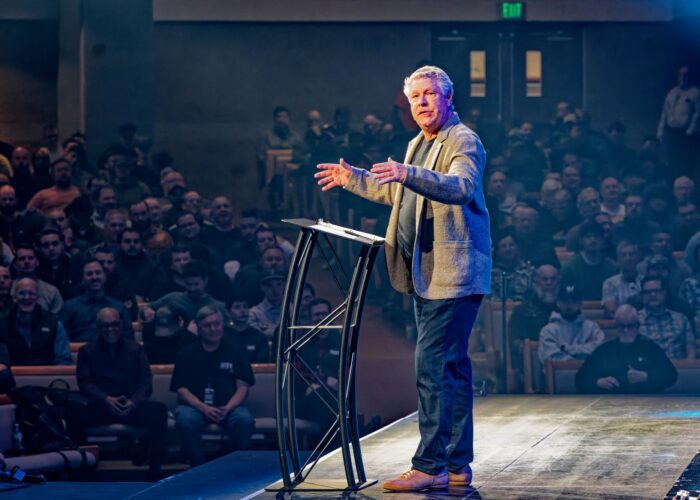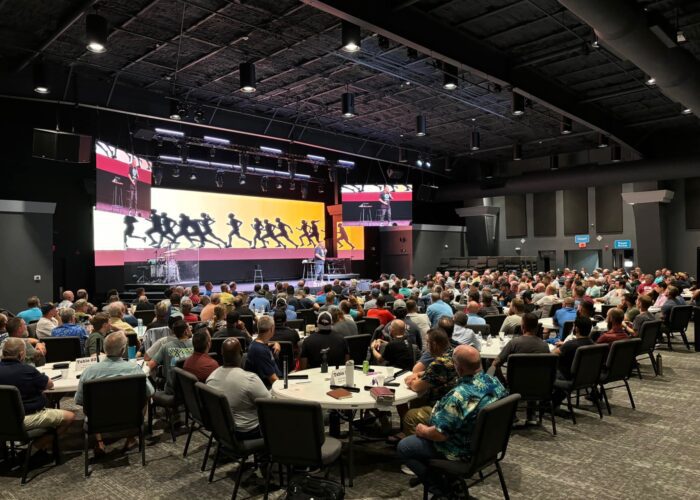A paradigm shift occurs when a person’s usual way of thinking about or doing something is significantly changed or altered. One such paradigm shift happened in 1906 when Eddie Cochems, St. Louis University’s football coach, introduced the forward pass to the game. His team went undefeated that year, outscoring their opponents 407-11.
After that landmark season, Cochems was declared the “Father of the Forward Pass”. A writer once claimed Cochems is to the forward pass what the Wright Brothers are to aviation and Thomas Edison is to electricity. Recently, there have been similar paradigm shifts when it comes to discipling men in our communities. It’s worthwhile to learn from these shifts and increase your ministry’s effectiveness in equipping men to be Godly men, in their homes, workplaces, churches, and world.
Shift #1.) Move from knowledge-based discipleship to obedience-based discipleship.
Many churches’ discipleship programs revolve around filling our minds with more knowledge rather than practical applications. These result in people who can quote dozens of verses but whose lives are no different from their non-religious neighbors.
Application: End each small group session with a time for members to describe how they plan to use what they learned in their lives. Open the next session by discussing how it went and sharing strategies for improvement. It’s about obedience not knowledge.
Shift #2.) Move from accidental discipleship to intentional discipleship.
My close friend Kenny Luck coined this phrase years ago and it’s been one of my favorites ever since. Many first-time small group leaders grab the latest men’s book or Right Now video series with little thought to where they are taking their men or seeking to equip them.
Application: An intentional leader will know where each of their group members are on their spiritual journey and what they need to move forward. They’ll also take time to meet with individuals outside of the group’ sessions. In this time, they’ll intentionally identify an apprentice and prepare them to lead their own group.
Shift #3.) Move from making disciples to making disciple-makers.
If we want to truly launch a movement of discipleship and reach the world for Jesus we are not going to do it by starting one men’s group here and another group there. We need to move from addition to multiplication. We are going to have to shift from just helping men become fully devoted followers of Jesus, but also help them do for others what you did for them. The goal is disciples who are on mission for God, making disciples in their sphere of influence.
Application: From the beginning of the discipleship process, tell your group members they should be able to replicate the process for others by the end of your sessions. Include them in every step of leading a group and after nine months they should have the tools to lead their own.
Shift #4.) Move from discussion to discovery.
Many leaders are satisfied by being able to lead a discussion where their group members are participating and interacting with each other. I’d like to suggest the next step is guiding the group to discover Scripture for themselves.
Application: Encourage your group members to find deeper meaning in the passages you study. Ask “What do we learn about God from this verse?” What do we learn about ourselves? What connections can we make to other passages or stories?” Your group should experience the joy of discovering the rich, deep truths of Scripture and the life changes they can bring.
Although the list isn’t comprehensive, these four paradigm shifts in how you disciple your men can significantly impact their lives and those around them. Thank you for the difference you are making by investing in their lives and spiritual journeys.










